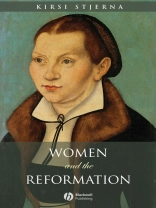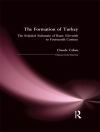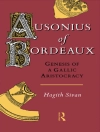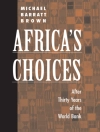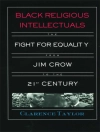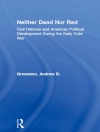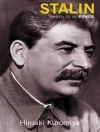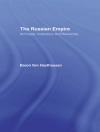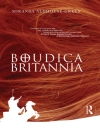Women and the Reformation gathers historical materials and personal accounts to provide a comprehensive and accessible look at the status and contributions of women as leaders in the 16th century Protestant world.
* Explores the new and expanded role as core participants in Christian life that women experienced during the Reformation
* Examines diverse individual stories from women of the times, ranging from biographical sketches of the ex-nun Katharina von Bora Luther and Queen Jeanne d’Albret, to the prophetess Ursula Jost and the learned Olimpia Fulvia Morata
* Brings together social history and theology to provide a groundbreaking volume on the theological effects that these women had on Christian life and spirituality
* Accompanied by a website at www.blackwellpublishing.com/stjerna offering student’s access to the writings by the women featured in the book
Innehållsförteckning
Acknowledgments.
Introduction.
The Vision and the Scope of the Book.
The Term ’Reformation’ and Inclusivity Concerns.
Visionary Studies on Women and the Reformation.
Women in this Book.
Part 1 Options and Visions for Women.
1. Prophets, Visionaries, and Martyrs – Ursula Jost and her Publisher Margarethe Prüss.
Introduction – Medieval Women Visionaries.
Anabaptists and Martyrs.
Prophets in Strasbourg and their Publisher Margarethe Prüss.
Prophet Ursula Jost and her Visions.
Conclusion.
2. The Monastic Option – The Struggle of the Convents.
Introduction – The Drama of Closing the Convents.
An Excursion – Monastic Calling.
Nuns’ Fight for Freedom.
Conclusion.
3. Marriage and Motherhood – The Preferred Calling.
Introduction – Marriage Only?.
The Holy Marital Vocation.
Pastors’ Wives.
Motherhood, Prostitution, Divorce.
Conclusion.
4. Learning and Power – An Elusive Option.
Introduction: The Impetus and Obstacles for Theological Writing.
Writing with and without Visions.
The Education Factor.
The Educated Women.
Part 2: Women as Models, Leaders and Teachers of the Reformation 49.
5. ’Herr Doktor’ Katharina von Bora, 1499-1552, The Lutheran Matriarch.
Introduction.
Katharina – From a Nun to the Ultimate Reformer’s Spouse.
Conclusion.
A Word about Sources and References.
6. Argula von Grumbach, 1492 to 1563/68? – A Bavarian Apologist and a Pamphleteer.
Introduction.
Argula as a Defender of Faith – A Valiant Christian, or a Devilish Woman?.
Conclusion.
A Word about Sources and References.
7. Elisabeth von Brandenburg, 1485-1555, and Elisabeth von Braunschweig, 1510-1558 – Exiled Mothers, Reforming Rulers.
Introduction.
Elisabeth von Brandenburg née Elisabeth of Denmark – A Reformer in Exile.
Elisabeth von Braunschweig-Lüneburg (Calenberg), 1510-1558.
Conclusion.
A Word about Sources and References.
8. Katharina Schütz Zell, 1498-1562 – A Publishing Church Mother in Strasbourg.
Introduction.
A Church Mother, a Pastoral Care Provider, a Writer, Even a Preacher.
Conclusion.
A Word about Sources and References.
9. Marie Dentière, 1495-1561 – A Genevan Reformer and Writer.
Introduction.
Marie Dentière – A Feminist Reformer and Biblical Interpreteter.
Conclusion.
A Word about Sources and References.
10. Marguerite de Navarre, 1492-1549, and Jeanne d’Albret, 1528-1572 – The Protectors of the French Reformers.
Introduction.
Marguerite d’Angoulême/de Navarre – The Illustrious Queen, Writer and Spiritual Mother.
Jeanne d’Albret, a Protestant Queen and a Huguenot leader.
Conclusion.
A Word about Sources and References.
11. Renée de France, 1510-1575 – A Friend of the Huguenots.
Introduction.
Renée – A French Protector of Huguenots in Italy and France.
Conclusion.
A Word about Sources and References.
12. Olimpia Fulvia Morata, 1526-1555 – An Italian Scholar Introduction.
Olimpia Fulvia Morata, a Classicist Huguenot Teacher.
Conclusion.
A Word about Sources and References.
Conclusions and Observations on Gender and the Reformation.
Reformation and Gender, Changes and Losses.
Individual Choices and Women’s Experiences.
The Options for Women.
Reformers’ Ideas about Women.
Sola Scriptura, Education, and Legal Matters.
Conclusion.
Bibliography.
Options and Visions for Women.
Women as Models, Leaders and Teachers of the Reformation.
Index
Om författaren
Kirsi Stjerna is Associate Professor of Reformation Church History and Director of the Institute for Luther Studies at the Lutheran Theological Seminary at Gettysburg. She is the editor of The Role of the Bishop: Changing Models for a Global Church (2001) and Homoeroticism in the Biblical World: A Historical Perspective (1998).
